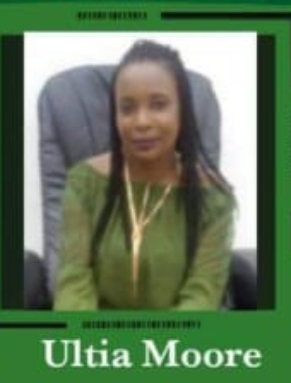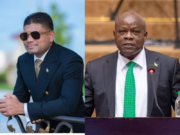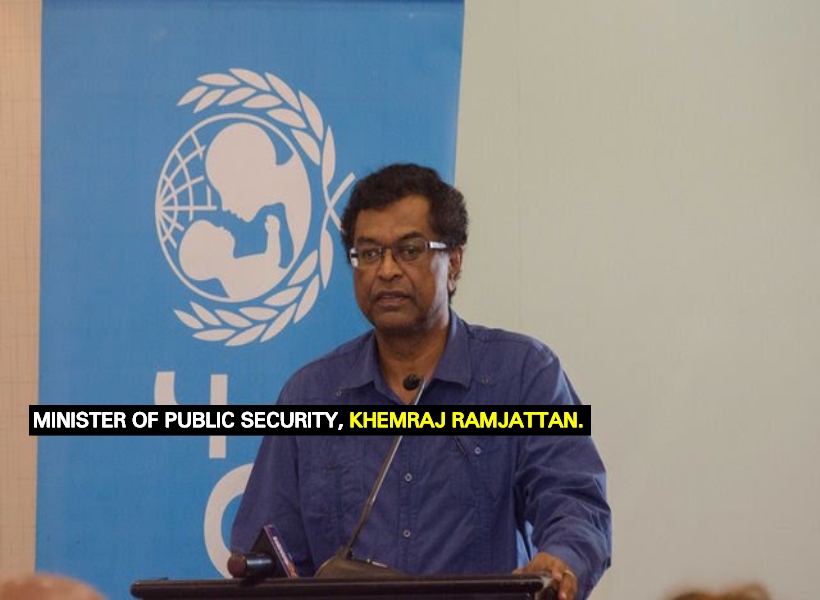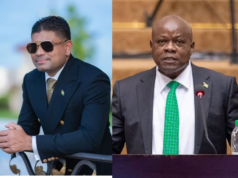Minister of Public Security, Khemraj Ramjattan is of the strong view that the High Court has jurisdiction to hear an application by his party’s Candidate, Ulita Moore, who has since secured an interim injunction blocking a CARICOM-supervised recount of the votes cast in the 10 electoral districts in the March 2 General and Regional Elections.

Lawyers for Opposition Leader, Bharrat Jagdeo are arguing that the court does not have the authority to hear the matter. Ramjattan, however, finds this argument “stunning”. He made these and other remarks last evening during a late night discussion live streamed on the APNU+AFC Facebook page.
According to Ramjattan, the PPP/C argument is premised on what are called the ouster clause, a clause which seeks to exclude the jurisdiction of the court. But, Ramjattan said that such clauses are narrowly interpreted. He reminded that a similar case was filed in relation to the 1997 elections, in which the court ruled that it will not oust itself from jurisdiction.
In that case, the PNC petitioned the Court to quash the Chairman’s declaration of Jagan winning the Presidency. After she was sworn in as President, court order was sought by the PNC/R to (a) prohibit the Chancellor of the Judiciary from swearing in Mrs Janet Jagan as President; and (b) prohibiting Mrs Jagan from assuming the Office of President and/or entering upon the duties of her office. The orders were granted but the swearing in had already taken place, thus nullifying the court order.
Jagan created public consternation when she threw the court order over her shoulder at the ceremonial event held at the State House.
“I have lived through the experience of the 1997 elections and I remember and I hope that some of the lawyers remember this. I think some of the most senior lawyers will remember. In a very famous decision, [then] Chief Justice Desiree Bernard had indicated that very, very sparingly you oust the jurisdiction of the court from inquiring into the lawfulness of any matter, Ramjattan recalled.
He continued, “I think it was in the [former PNC/R Executive Member] Aubrey Norton matter. I was there, I was a little Research Assistant to [Senior Counsel] Mr Ralph Ramkarran for Donald Ramotar and Janet Jagan. I was in the PPP then.” Apart from this case, Ramjattan said that he recalls many classic cases that once a matter is taken before the court and it makes a pronouncement on jurisdiction, it will have to be given the leeway to inquire.
“I remember it [ouster clauses] being used in that same very case with Aubrey Norton when the Chief Justice ruled that the court was not going to oust itself or exclude itself from the jurisdiction to hear the matter. That is a matter where Janet Jagan was sworn in [as President] before a declaration was made. So, here it is, that had happened then, and the court case…there was a major ruling as far as I recalled and in it the court declared that you just cannot exclude the court.”
He said that the same thing is happening to Moore and the PPP/C. He added that while the PPP/C is arguing that Moore’s case cannot be heard because of certain things; the court is not going to allow that to happen. According to him, “There are very narrow confines in relation to which the court ousts itself from jurisdiction. Because if the court starts abdicating its inquiry role; the court will always say I am ousted from jurisdiction; that is a matter for GECOM and things like that.”
Ramjattan then went on to question why this same argument did not apply in relation to the Reaz Hollander matter and now it applied in Moore’s case. Hollander, the personal driver of PPP/C lawyer Anil Nandlall, was successful in his application in which he asked the court to inquire into the circumstances under which Region Four’s Returning Officer (RO) Clairmont Mingo, arrived at his first declaration.
The Chief Justice, after ruling that she had jurisdiction to hear the case, nullified Mingo’s declaration on the basis that it amounted to a serious breach of electoral laws.
He added, “A lot of people might want to know what kind of funniness is going on here and that is total hypocrisy on part of the PPP in my opinion. Unless I read the law wrong or unless the PPP are coming up with some distinction from what is now before the court as against what was before in the Hollander matter…But all has to do with the decision making of GECOM or its officers.”
The Returning Officer is a major officer of GECOM, Ramjattan pointed out, and GECOM, although it is a constitutional body at the top with the commission, it has so many people underneath it.
“All of that is GECOM and when you feel you can pick an employee and do what with the employee or whatever…and say that the RO is subject to scrutiny by the court, but GECOM is not subject to scrutiny. That very narrow issue was decided by the [Aubrey] Norton case in which they said once there is a conclusive certificate in relation to the swearing in of the President, will then the court is ousted. The only way you go by now is an elections petition.”
The minister said that he has been preaching all along that an elections petition is the only way to go. “We have been arguing this all along. GECOM is the referee, GECOM is the umpire even if you feel that the umpire make a wrong decision, if the umpire raise he finger, you have to walk. If the umpire don’t raise he finger you just stay where you are. The umpire is the one that makes the final call.”
“In the election process, then you go now to the referee or whatever the other system, you have to go by an election petition. That is like…the third umpire.”
Jagdeo is now asking the court to compel Chief Elections Officers, Keith Lowenfield and Mingo to disclose the Statements of Polls (SoPs) for Regent Four. But lawyers for the elections officials are arguing that there is no way this will happen. In fact, they too, have argued that the court has no jurisdiction to entertain such an application as it requires an elections petition.









